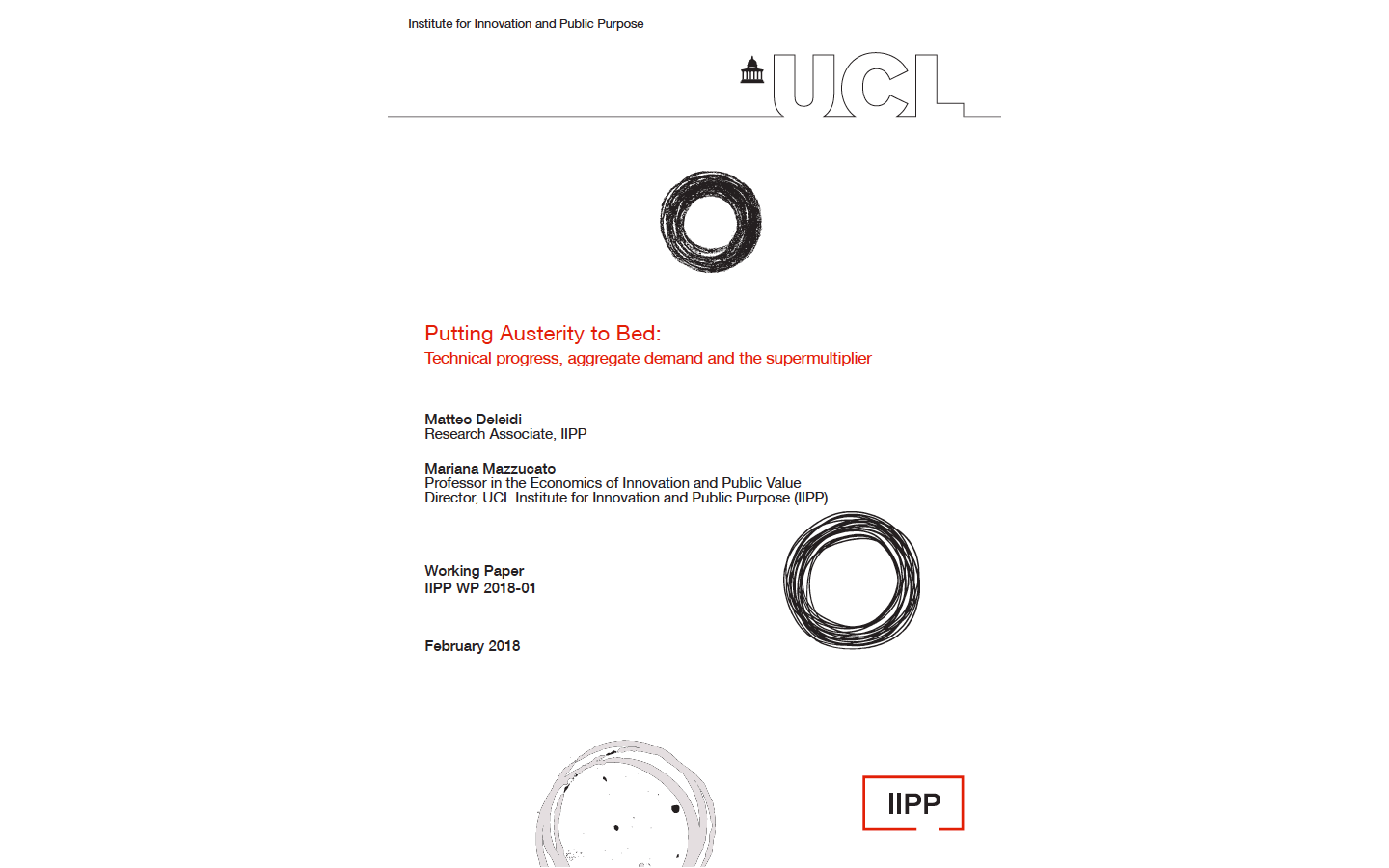Putting austerity to bed: Technical progress, aggregate demand and the supermultiplier

18 January 2018
UCL Institute for Innovation and Public Purpose (IIPP) Working Paper Series: IIPP WP 2018-02
This working paper was also published as a journal article in Review of Political Economy.
Authors
- Matteo Deleidi | Research Associate, UCL Institute for Innovation and Public Purpose
- Mariana Mazzucato | Director, Professor in the Economics of Innovation and Public Value, UCL Institute for Innovation and Public Purpose
Reference
Deleidi, M, Mazzucato, M, (2018). "Putting austerity to bed: Technical progress, aggregate demand and the supermultiplier." UCL Institute for Innovation and Public Purpose, Working Paper Series (IIPP WP 2018-02). Available at: https://www.ucl.ac.uk/bartlett/publicpurpose/wp2018-02
Abstract
This paper investigates the determinants of private investment and economic growth from a theoretical perspective. We start with a critical analysis of the crowding-out effect and we present a new version of the Sraffian Supermultiplier, i.e. a model that accounts for both the multiplier and accelerator effects. We show that aggregate demand influences output in both the short and long-run, so that expansionary fiscal policies generate positive effects on economic growth. Furthermore, as business investments in the model are induced by (and dependent on) effective demand and technical progress, any permanent increase in public investment generates a positive effect on the accumulation of capital. We focus on different types of fiscal policies: generic ones (e.g. on bridges and roads) and “mission-oriented” ones that set a new direction for the economy (e.g. the ICT direction in the US during the 80s and 90s, or the German Energiewende direction in the 2000s). We show that mission-oriented innovation policies have the potential to generate the largest supermultiplier and the highest expectations of future growth opportunities by business – thus, generating the largest effect on investments and long-run output. Moreover, such policies – by facilitating the development and the diffusion of innovations in the economic system – generate positive effects on other components of aggregate demand, such as consumption and net exports.
 Close
Close

